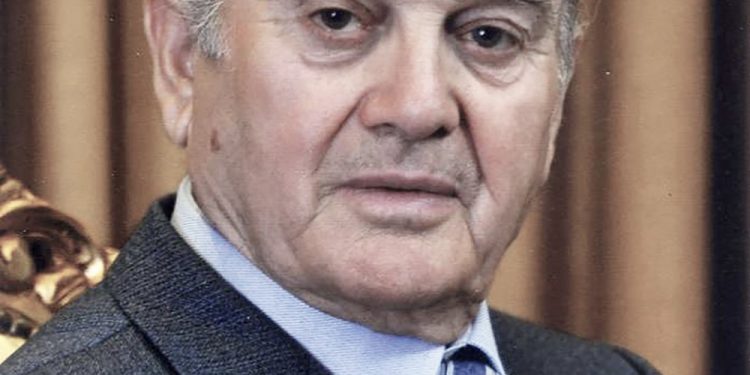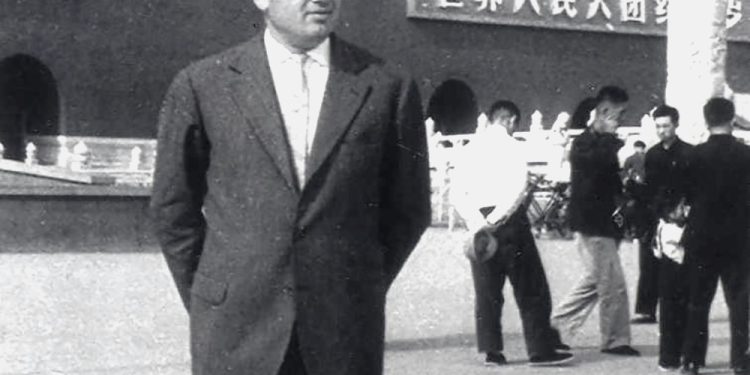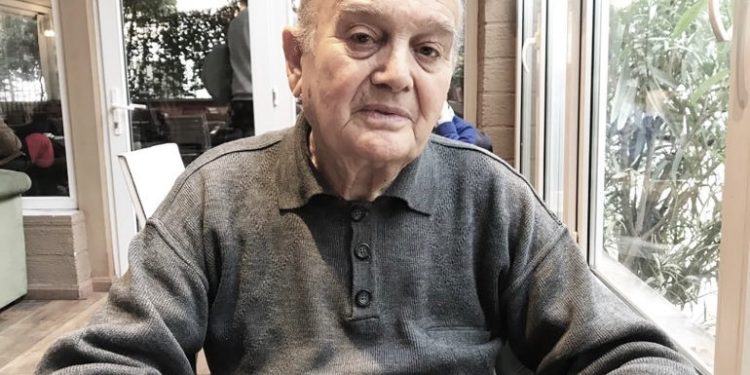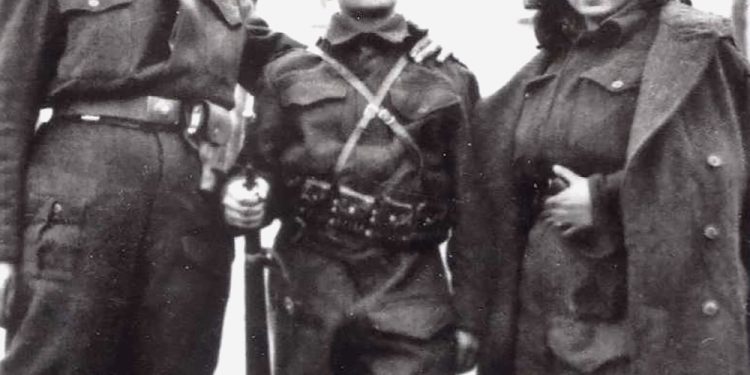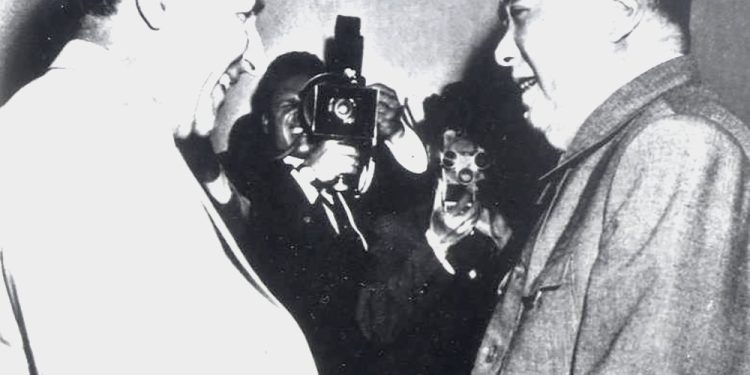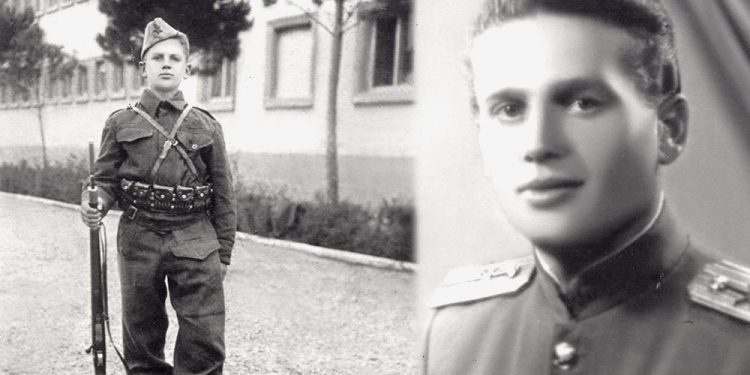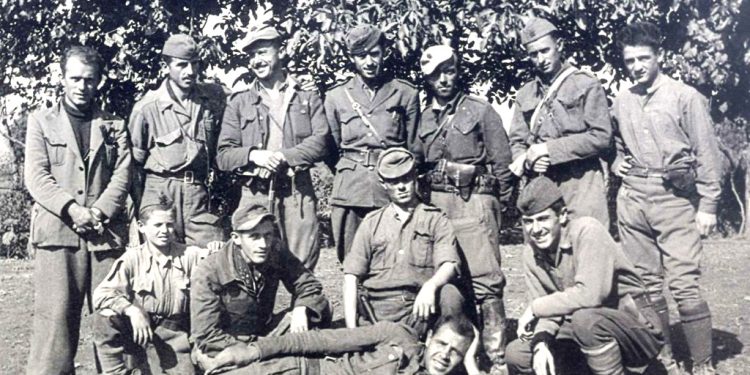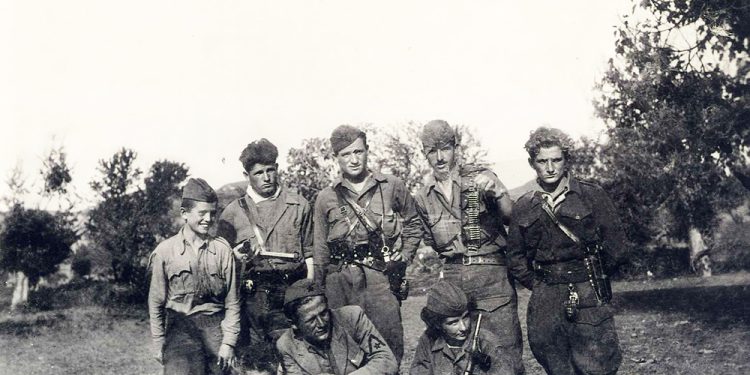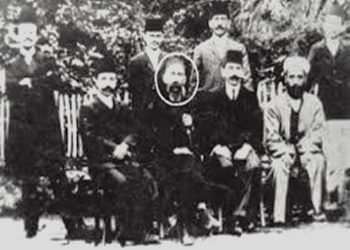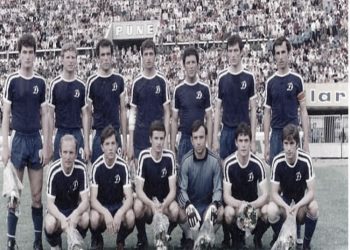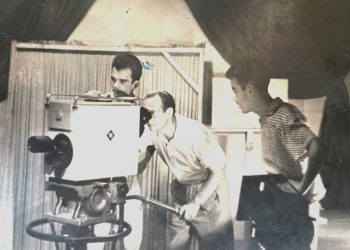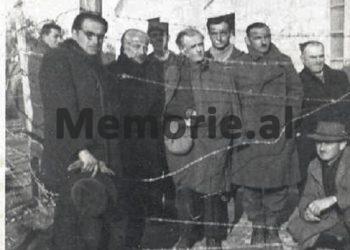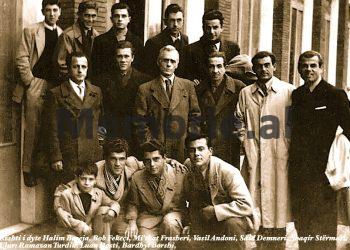From Rezarta Delisula
Memorie.al / His life resembles a mountain that has a base, but also a top. He reached his peak, because the Film Archive of the former Kinostudio “New Albania” holds hundreds of his recordings, documentaries and film-magazines, football matches and reports in and outside the country, sensational stories in the 50s – The 70s. But it also touched base, when, by the first cameraman for filming the leadership, he was convicted of agitation and propaganda and served 6 years in Spaç. This is Dhimitër Lala, the 93-year-old who today lives on a miner’s pension, and no one remembered to give a special state pension to this man, who fought with a gun in his hand for the liberation of the country at the age of 13. , and also for having an extraordinary contribution to the establishment of Albanian cinematography and, more recently, a man who suffered in the terrible camp of Spaçi, the brutal violence of the communist regime of Enver Hoxha and his successor, Ramiz Alia.
In this exclusive interview for us, Dhimitër Lala tells the story of his life and the very interesting and previously unsaid details about Enver Hoxha’s meeting with Khrushchev and former prime minister Mehmet Shehu with his Chinese counterpart, Çu En Lain.
Mr. Lala, where and when were you born?
I was born in the city of Pogradec, on October 2, 1931. I spent my childhood and education in this beautiful city by the lake. Even later, when I left Pogradec, I kept coming back. I left my mother, father, two brothers and two sisters there.
Why did you run away from Pogradec?
The 4th Assault Brigade came to the village and I joined them, I became a partisan. We took the road to liberate the north of the country and then we liberated Tirana.
You were very young at that time, was it difficult for you?
No, on the contrary, at that time it became fashionable for young boys and girls to join the National Liberation Movement. For prowess in war, I received the “Medal of Bravery”, “Medal of Liberation” and “Medal of Remembrance”. After the war, I attended “Skënderbej” school and was one of the first students in the military school.
In 1949, I attended higher studies to become an officer and graduated. I served a few years as a soldier in various duties, until November 1953, and then I was transferred to the “New Albania” Kinostudio.
Why were you passed over at Kinostudio?
The army has one thing, that if you are a careerist, you go, while I, who was more connected to art, made it a big fight to be demobilized. I had no inclination to be a soldier, because you had to be strict, to be like that, you had to be disciplined.
What task did they give you at Kinostudio?
First, I was put in charge of cinemas and very soon, assistant operator. I loved art very much, I felt myself very well among artists. I was lucky to meet and, of course, he taught me everything about the camera, Hamdi Ferhat, the first Albanian operator. Besides him, Mandi Koçi, or as she was known otherwise, also gave me a great help. “Maku”, the former first photographer of Enver Hoxha’s General Staff during the War.
When did you use the camera for the first time?
I still don’t forget that moment, when during the inauguration of the Gjadri embankment, in 1956, Hamdi Ferhati handed me the camera and said: “Film”! I was flying with joy. As an assistant operator, I also worked in the first Albanian feature film, Hysen Hakan’s film; “Her children”. Then I moved on to chronicles and documentaries.
When did you switch to documentaries?
In 1958, I finally switched to chronicles and documentaries.
Did you like the new profession?
Of course a lot. I have fallen all over my Albania and I have not left a corner of it without filming. Likewise, I was present at many international meetings, where I filmed dozens of world personalities who visited Albania in the 50s-60s, from Nikita Khrushchev to Chu En Lai, as well as many trips abroad, to documentaries, from China to Northern Ireland.
Tell us any details about the leader of that time, Enver?
What is the truth, I was very fast on the set and did not tire the leaders, no lights, no wait a minute, so they had me as their favorite. Enver Hoxha looked at me with a very sympathetic eye. I remember one time, when we had stopped at “Ujin e čerda”, in Tepelena, for breakfast. He was with Nexhmija, his wife. I was shooting and he called me; “Dimitri, come here, sit and eat with us.”
I stayed, and I told him; “No, thank you very much, because I have eaten.” My luck at that moment, Shefqet Peçi came and they got up to meet him and he sat with them, while I ran away. But Enver was attentive. He called Commander Muhamet Prodani and told him to get a letter and wrapped everything that was on the table and brought it to me to eat.
What about foreign personalities, any details from their “secret” conversations with Enver Hoxha?
When Khrushchev came, I was the first to have contact, because I went up to the plane. When the Soviet leader went down the stairs and met Enver, he said in his ear; “As long as I’m here, don’t say anything to Tito…”! While I am telling you an interesting moment, which has remained in my mind. When I was in China with Mehmet Shehu, I, as an operator, entered the meeting room 10 minutes before making plans, when I heard Mehmet say to Çu En Lai:
“We, those who betray Marxism-Leninism, put a bullet in the forehead…”! While the Chinese leader’s response surprised me, he reciprocated; “The head is not a cabbage, and this is not the right way. Take those who are against it, take them to a villa in the countryside, give them the works of Mao and Enver, and they will read them and change their minds”.
You told me that in 1971, from Kinostudio “New Albania”, you were transferred to Albanian Television, why?
At that time, the senior management wanted to strengthen the Television and thus, I, Endri Kekon and Kristaq Dhamon, were sent there to give our experience. Kristaqi and Endri returned, while I remained, until 1974.
I would have continued even further, if I hadn’t been caught by the “red pencil” of the party, which, within the framework of the arrests at the Albanian Radio-Television, found the opportunity to fire me from my job. In April 1975, I was expelled from the party, while on October 12, 1976, I was arrested.
Why were you accused?
Initially, I spent 7 months as an investigator and was sentenced to 6 years, for agitation and propaganda, years, which I completed in full.
What was prison like for you?
The situation was very difficult. Spaçi was the most terrible camp, as the prisoners worked in the mine for eight hours. I had no help from my family, since the six years I suffered there, no one came to see me and I had to work and get some money to buy anything in the store.
Did you meet any public figures during those years in Spaç?
Yes, I had Maks Velo, Spartak Ngjela, Fatos Lubonja…! Fatosi has been very brave. He did not agree to work in the mine and told him; “I am a political convict, why should I work”, while they beat him, put him in the dungeon, but he still did not give up.
You have expressed that; there were no heroes in the prison, but spies and provocateurs, in fact, how was the situation there?
When I was in Kaushi in Tirana, (before they took me to Spaç) where there were also ordinary convicts, I saw some yellow faces crouching down, I asked one of them; “What do these people have who sit like this”? And he explained to me that; either they testify in someone’s trial or they are recruited to leave them in a cell with political prisoners, to spy on them”.
And that’s what happened to me. Before they took me to Spaç, they left me in the dungeon with a young man and I, as soon as I went to greet him and chatted with him, when I remembered that yellow face, I said to myself: “Watch out Dhimitër”.
I asked him: “What did you go to jail for?” He told me that he had been imprisoned because he had listened to Radio London. There I caught him lying, that Radio “Voice of America” was being heard, but Radio-London was not. When I was called to go to the investigator, I put on the shoes and saw the position where he had put them. When I came back, I saw that they had moved, they were no longer in the same place, so they had called him too.
Have you ever been back to Spač?
Yes, I went after the 90s, with a photographer, to make an exhibition.
Who did you hang out with when you were serving your sentence there?
The company had to be well chosen there, because 70 percent were recruited by operatives and spies. We were 4 people from Tirana, staying together.
What about the years after prison, how were they?
When I was released from prison, I worked at the “Dajti” plant, worker, loading and unloading, for 3 years, from there at “Misto Mame”, loading and unloading worker, until 1987, I retired.
Did you ask Enver Hoxha for help when you were imprisoned?
No, no, no…! It’s not even a question.
How are you living today, are you over 90 years old?
I live on my pension. I receive a miner’s pension, because I worked in Spaç e, I have lost 16,000 lek (old), per month.
How is your day?
I’m staying at home with my wife, most of the time. Sometimes I go out for coffee with a friend. I have one son in Switzerland, while the other one died a few years ago. Memorie.al




